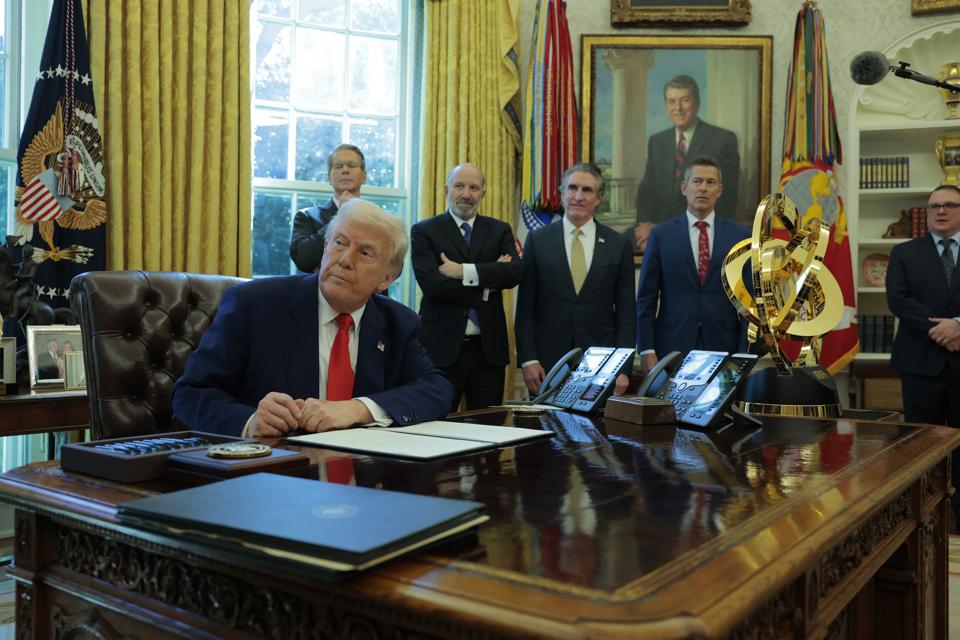President Trump’s recent trade policies have introduced steep duties on imports, 10% across the board, with higher rates targeting key partners like China and the European Union. These measures are intended to bolster domestic industries. However, the policies have sent shockwaves through the stock market and raised pressing questions about the job market’s resilience.
Policymakers might argue tariffs protect American jobs, but history, like the Smoot-Hawley Tariff of 1930, suggests trade wars often backfire, hurting workers across borders.
In theory, tariffs could spark a renaissance for industries like textiles or heavy machinery, creating roles for welders, machinists, and factory workers. Small towns hollowed out by globalization might see some hope of a better future.
Unfortunately, the reality is that building and staffing new factories can take many years. Workers can’t wait that long. A machinist laid off today won’t find comfort in a manufacturing plant opening in ten years from now.
What Top Financial Professionals Are Saying About Tariffs
In an interview with Fox Business’ Mornings, Jamie Dimon, CEO of JPMorgan Chase, pointed to recent volatility in the financial markets as a signal of deepening economic troubles. He warned that tariffs will likely increase inflation and raise recession odds, per his April 7 shareholder letter.
Businesses and workers now need to navigate this new environment. The interplay of tariffs, stock market volatility, potential recession, and employment trends reveals a complex situation. The job market may start feeling the tremors as tariffs persist. For workers, the connection between trade policy and paychecks might seem distant, but it’s all connected.
Bill Ackman, CEO of the hedge fund Pershing Square, calls tariffs an “economic nuclear winter,” in The New York Post. The billionaire called for a 90-day time-out, for Trump to negotiate the “unfair asymmetric tariff deals.” He sees investment stalling, threatening jobs across retail and manufacturing if tariffs persist.
Billionaire hedge fund founder of Bridgewater, Ray Dalio, said in the Wall Street Journal that he is “very concerned” about the logistics and practicalities of President Trump’s tariff plans, while also agreeing that the U.S. has a manufacturing problem.
Higher Costs And Scaling Back Hiring
The job market, for now, holds steady but shows some cracks. Unemployment hovers around 4.2%, but industries exposed to tariffs, agriculture, retail, and auto manufacturing, are bracing for turbulence. The higher costs for imported materials can erode competitiveness, prompting firms to scale back expansion plans. This could end up in letting go of workers and holding back on hiring new personnel.
For example, a small U.S. car parts manufacturer might face pricier steel imports, leading to reduced business, resulting in fewer hires. On the other hand, tariffs could spark growth in industries less reliant on foreign inputs, like domestic energy or software. Workers in these sectors might see opportunities.
A furniture maker relying on imported lumber might cut shifts to offset expenses. A retailer facing pricier overseas inventory could freeze hiring. Industries tied to exports like farming or machinery, face retaliatory tariffs, risking layoffs if foreign demand dries up.
There is a psychological ripple effect to be aware of. Tariffs breed uncertainty. Concerns over an uncertain future may freeze business decisions and dampen consumer confidence. If households tighten their belts, demand for goods and services drops, further pressuring employers. When a company faces higher costs for foreign components, such as semiconductors or aluminum, its profits shrink.
There is a silver lining. Sectors shielded from imports, like domestic construction or clean energy, could see job growth as firms lean into “made in the USA.” High-skill workers in tech or finance can better weather trade storms, as their industries rely less on physical goods. Low-skill workers in manufacturing or logistics, face the brunt of tariffs. This entails fewer hours, tighter budgets, or job loss.

